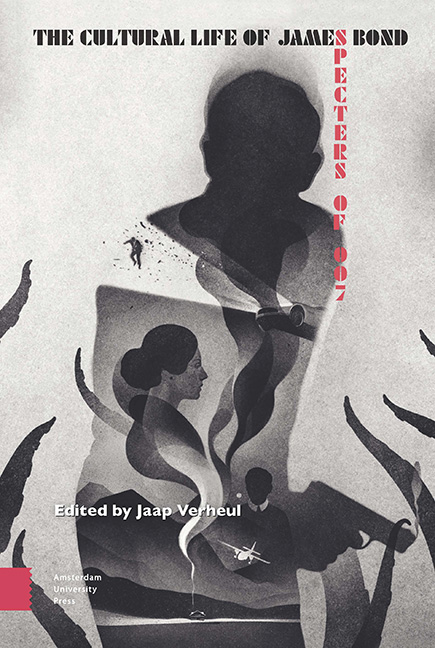Book contents
2 - A Socialist 007: East European Spy Dramas in the Early James Bond Era
Published online by Cambridge University Press: 20 November 2020
Summary
Abstract
If the James Bond films were officially unavailable to East European audiences until 1989, the Eastern Bloc did not escape the global reach of the Bond phenomenon. East European spy dramas began to appear during the late 1960s, and they were mostly made for television and not all that distant in spirit from the Bond films. This chapter examines three television series: More Than Life at Stake (1967-1968) from Poland, The Invisible Gun Sight (1973-1979) from the German Democratic Republic, and Seventeen Moments of Spring (1972) from the Soviet Union. While these tales of espionage evince the projections of the west in the east during the Cold War, they reveal foremost the powerful appeal of consumerism behind the Iron Curtain.
Keywords: James Bond; East European spy series; Cold War; transnational film and television; Socialist consumerism
Until 1989, the Eon James Bond film series was officially unavailable to Eastern European cinema audiences. The only exception was former Yugoslavia, which saw the release of Diamonds Are Forever (UK: Guy Hamilton, 1973) in 1973. Yet, Central and Eastern Europe did not escape the global phenomenon of the Bond films. By the mid-1980s, Polish, Hungarian and Yugoslav VHS markets, both underground and legal, boasted bootlegged Bond videos in circulation. Some East German viewers could watch West German TV channels which occasionally broadcast the adventures of 007; others, particularly educated urbanites with exposure to Western popular culture, were no strangers to Bond, though not necessarily his fans. More importantly, East European filmmakers and policymakers were aware of the Bond phenomenon. Directors, script writers, film critics and cultural apparatchiks enjoyed access to the adaptations of Ian Fleming's novels during their visits to the West and at closed screenings in film schools and studios. However, the absence of 007 on East European movie screens meant that national film industries were not under strong pressure to come up with direct cinematic responses. Competing with the world of luxury, excess, and explicit sexuality that the Bond films projected was, in any case, out of question. Considering censorship, and the shabby, everyday reality of the People's Democracies, such rivalry was ideologically unacceptable and potentially laughable.
- Type
- Chapter
- Information
- The Cultural Life of James BondSpecters of 007, pp. 41 - 60Publisher: Amsterdam University PressPrint publication year: 2020

